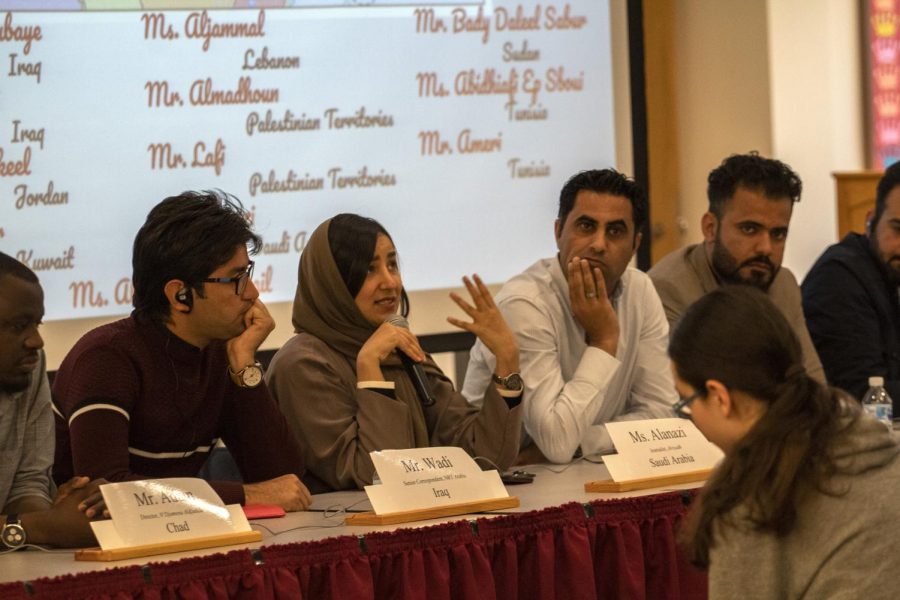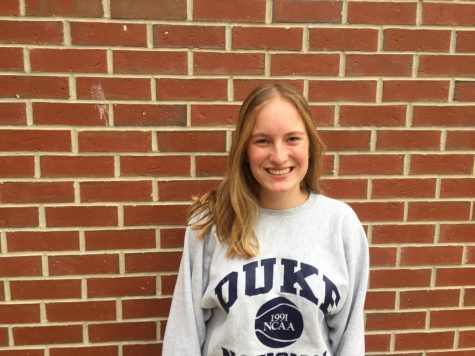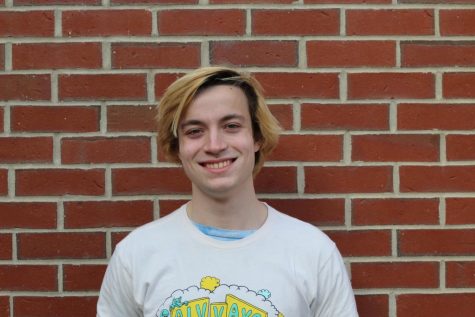International journalists speak about digital, social media
Saudi Arabian journalist Tawasif Malanazi speaks about her experience as a journalist in the Arab world.
May 20, 2019
Fifteen journalists from the Arab world joined a panel discussion on digital media and bias in the news for students in the library on May 10.
The journalists were here as a part of the Edward R. Murrow Program for Journalists U.S. Foreign Policy.
According to librarian Kim Honey, the opportunity was extended to Applied Arts and Technology teacher Catherine Griffin for her part in the news literacy project, a national program of which Algonquin was the first school to test in Computer Essentials classes.
The discussion started off with the journalists, who came from countries ranging from Tunisia and Egypt to Iraq and the Palestinian Territories, asking the attending students questions about their use of digital and social media and how they get their news.
Senior Jena Khreim believes that it is much harder to avoid misinformation in the United States due to social media as opposed to the countries of the Arab world.
“When I go to Jordan, people are more inclined to read from the newspapers, check the news and talk about things by word of mouth, and here, I don’t think that many people, at least not compared to there, read the newspaper or watch the news anymore,” Khreim said.
The panel shared the struggles of being journalists in the Arab world.
“The environment itself is unsafe for journalists to be working,” Iraqi journalist Ahemed Al Rubaye told to the audience through an interpreter. “We don’t have freedom of speech in most of the region, and this is totally different from the United States. Here, there is freedom of the press, the freedom of speech and we envy you for that.”
Al Rubaye continued to explain the challenges he and other journalists face in the Middle East to the audience. Despite knowing of the risks he ran with becoming a journalist, Al Rubaye pursued his passion.
“I became a journalist despite all the risks that I was aware of,” Al Rubaye said. “I was arrested because of my work. And I can tell you that now we see a lot of changes from the ground with the social media and the different youth outlets everywhere, but of us as journalists we always have to work to connect the two worlds.”
They also have to face oppression from their government, a struggle that is not faced by American journalists.
“If you are going to say something that the leadership don’t like, then they are going to try and punish you,” Palestinian journalist Bassam Almadhoun said in the discussion through an interpreter. “But at the end we as journalists, we work together, we try to corporate in different aspects, so at the end we can support each other and we can make our life easier.”
Many students were grateful for the opportunity to interact with journalists with such different stories than many American journalists.
“We always see journalists from America,” junior Bella Estes said. “We see news from America. We see how people interact with social things around our country, so I think it’s really interesting to finally get to meet people who come from a different place….it’s really interesting to be able to have a different insight than what we’re used to seeing all the time.”
While they are traveling the United States and talking to various other schools, the panel members hope their answers inform the students and have a positive impact as well.
“[American people] will be more interested in what is going on around the globe,” Sudanese newscaster Badawi Bady Daleel Sabur said through an interpreter. “American people will have more knowledge and opinion regarding foreign policy and relations.”











